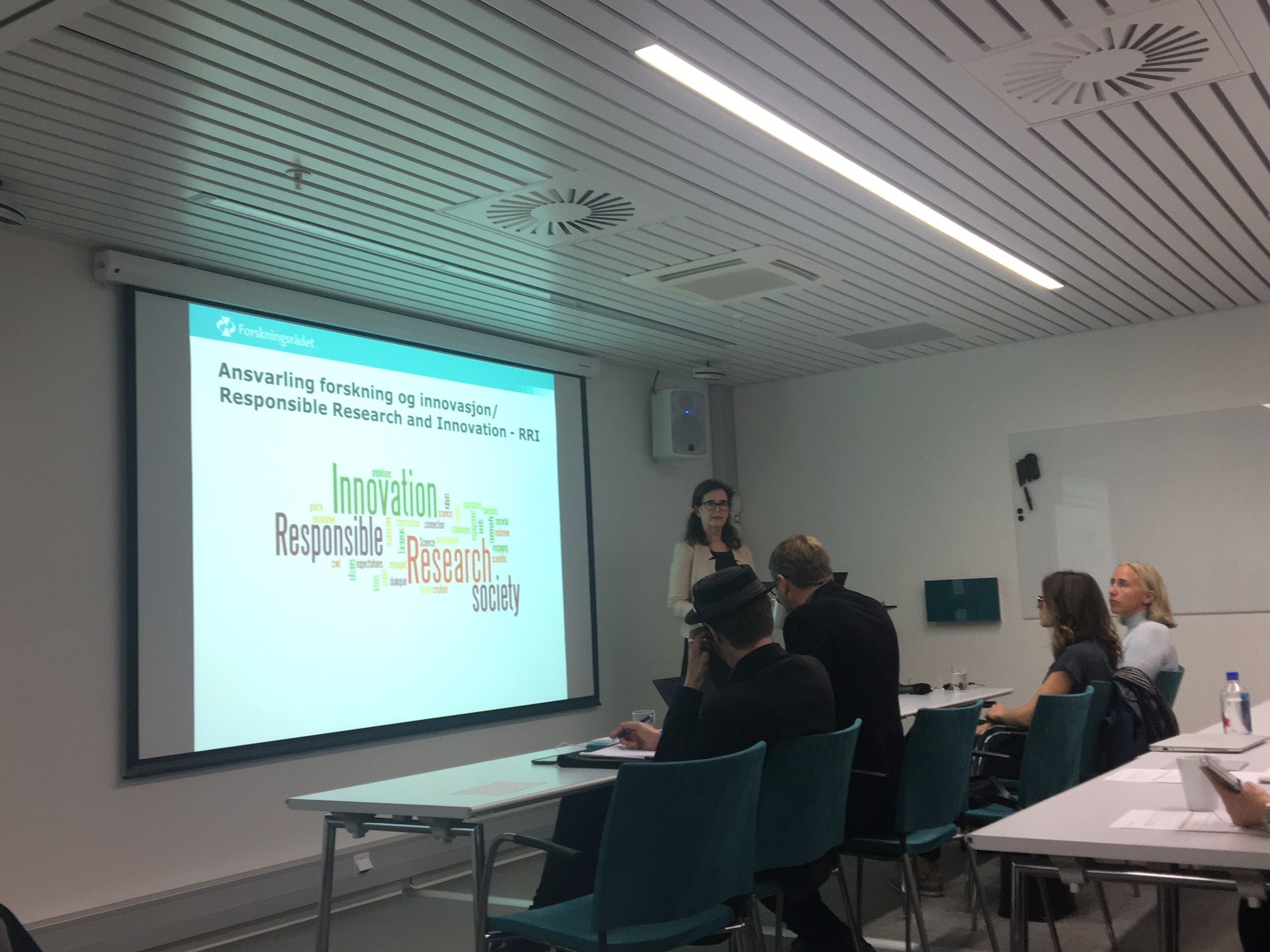iResponse @ Seminar on RRI
The 31st of August the Research Council of Norway (RCN) invited to a seminar on RRI – Responsible Research and Innovation. During the half-day seminar presenters from RCN and other institutions discussed the theoretical and practical aspects of RRI. A key message is that RRI is a way of thinking and working, where specifics may vary from project to project.

Foto: Line Barkved
There were about 50 participants attending the seminar, we were 3 representatives from the iResponse-consortium, Line Barkved (NIVA), Selamawit Fossum (UiO) and Harald Throne-Holst (SIFO).
The main speaker of the day was Ellen-Marie Forsberg from the Work Research Institute (AFI/HiOA). She is an experienced researcher in the field and she is currently coordinating one H2020 financed project and one large RCN-funded project with a particular focus of Responsible Research and Innovation (RRI).
Dr. Forsberg gave an excellent overview of the field and the main concepts. One particular point she highlighted is the confusion that tend to surround how the European Commission RRI keys (ethics, societal engagement, gender equality, open access/science and science education) should be understood. The presenter suggested:
the RRI keys could be understood as a way of operationalizing the RRI concepts, but more important than focusing too narrowly on the keys, is to let the thinking around the concept and its dimensions. At the same time, there is little doubt that the keys could be important in themselves, e.g. gender equality.
Following Dr. Forsberg, there was a short presentation by Jacob Wang representing the Biotech-programme in RCN on what RRI signifies for them. The final presentation of the day was by advisor Adele Flakke Johansen from the Norwegian Board of Technology on the CIMULACT-project funded by the EC, that aims to engage citizens and stakeholders in the co-creation of European research agendas.
Under the general Q&A session some intriguing questions and comments were made, e.g what is the relationship (if any) between RRI and the UN Sustainable Development Goals? Understanding RRI and prioritizing it in projects with limited funds. This highlighted two fascinating aspects:
1) If you consider the aims of your research to be responsible (e.g. increasing the sustainability of a value chain or cutting carbon dioxide emissions from a particular process) – is that not enough?
2) Do projects need dedicated scientists (social scientists or researcher with a background in the humanities), or could the researchers at the laboratory do this by themselves?
Theoretically, innovators, researchers and scientists are advised to take into consideration the main elements and processes of RRI in their research endeavor.
The main keys (elements): governance, public engagements, open access, gender, ethics and science education.
Main dimensions: anticipation, reflection, responsiveness, inclusion.
RRI can be hard – but doing research is hard in general, so that is hardly a valid argument! Further, doing anticipation, inclusion of outside voices, reflection can unlock new perspectives and angles on the solution to be developed. It is an old saying that the road to hell is paved with good intentions. Even projects with laudable, ‘responsible’ aims, will benefit from including researchers dedicated to RRI. And, yes, project should have dedicated people on RRI, otherwise it may soon enough fall out of the agenda of the project.
Take away messages from the seminar:
- RRI should not be considered as a funding mechanism, it should be a necessary and constructive component of innovation and research
- RRI is a way of thinking which creates mutual responsibility between researchers and the society at large
- RRI may appear difficult, but research and innovation is difficult and we need to embrace it
- Not all elements and processes of RRI are equally applicable for all types of projects. So, apply it according to its suitability for your project
This blog Post is written by Selamawit Fossum (UiO) and Harald Throne-Holst (SIFO)